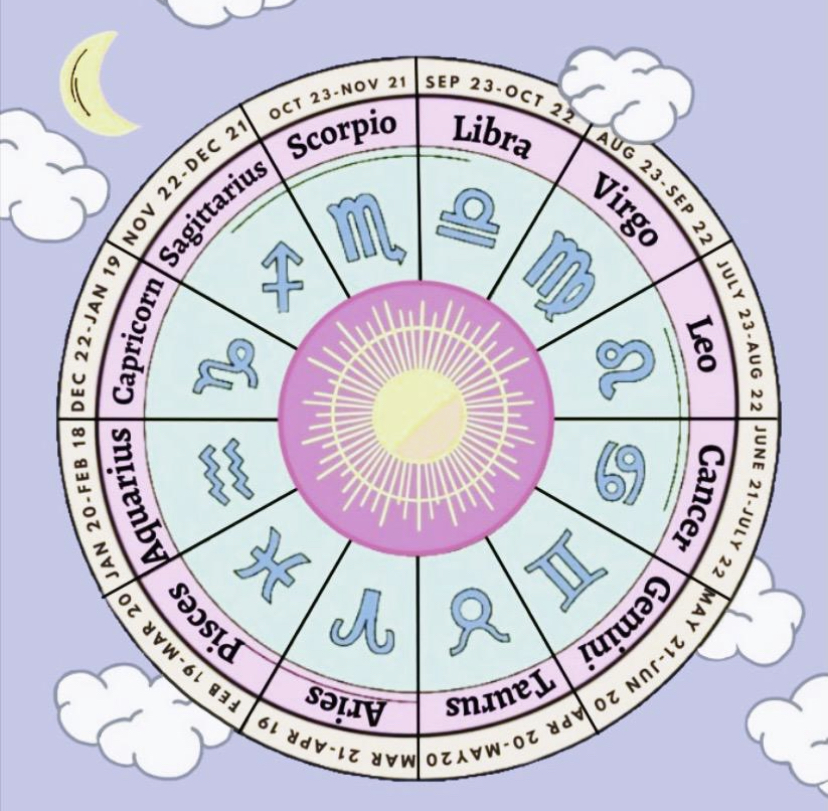How astrology came to be
May 17, 2021
Each of the 12 zodiac signs display unique traits that help them stand out from the other signs.
When it comes to astrology and the zodiac signs, people tend to excite themselves by relating to their signs’ traits and characteristics, but what about the history of astrology itself? The 12 zodiac signs were created by the Babylonians around 2,400 years ago. Babylon, or modern day Iraq, was one of the most famous Mesopotamian cities. Due to the fact that the Babylonians followed a 12-month calendar, they assigned each month a zodiac sign.
Additionally, the Babylonians mapped out the fixed stars, while also giving them names and believing that constellations held a strong significance. Over time, they used astrology methods to predict natural disasters, wars, and famines. It even became a great fortune telling tool that was used to counsel kings and emperors.
Currently, the oldest astrological document dates between 668 and 626 B.C. This document contains early astrological predictions as well as astronomical observations. In addition to this, an early horoscope birth chart dated for 410 B.C. also survived. Thus, there are several proofs today that astrology has existed for thousands of years.
Despite this, the Babylonians were not necessarily the first individuals to chart the stars and planets. Although they did assist in charting the foundation for the moden astrological system, the ancient Mayans, Aztecs and Incans from South America developed complex astrological systems that were based on a zodiac of 20 different signs. Such signs were inspired by a mix of animals that include jaguars, apes, and dogs, or even natural phenomena such as earthquakes.
The system that most people follow today roots in both Babylon and Greece. The Babylonian horoscope was introduced to the Greeks during Alexander the Great’s conquest of Asia. But, it was not until much after Alexander the Great’s death that both the calendar and astrological system was translated from Babylonian to Greek.
Some believe that the Greeks helped astrology peak, as their version of zodiacs continued to expand and eventually became a common practice. It is even believed that famous Roman Emperors had their sign engraved on coins due to its commonality.
Later on, in the earth 12th century, several Persian and Muslim territories refuted astrology and abondoned it in the favor of early science. However, the 20th century led to a surge of interest in astrology as dozens of books and magazines on the topic began to appear. Even though individuals today may not rely on astrology or even believe in its powers such as the Babylonians or Greeks, the history of astrology is not completed yet, and the stars have many more souls to influence.
